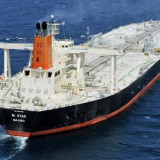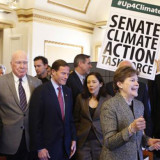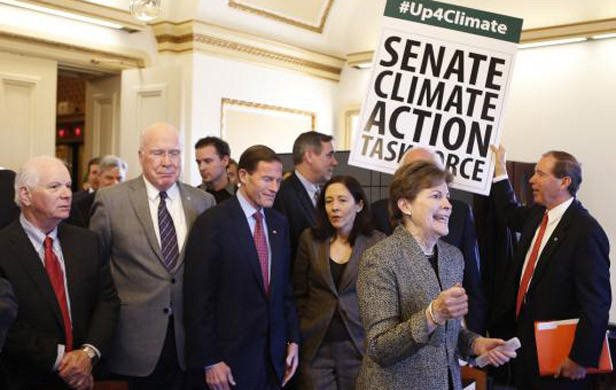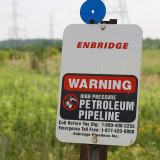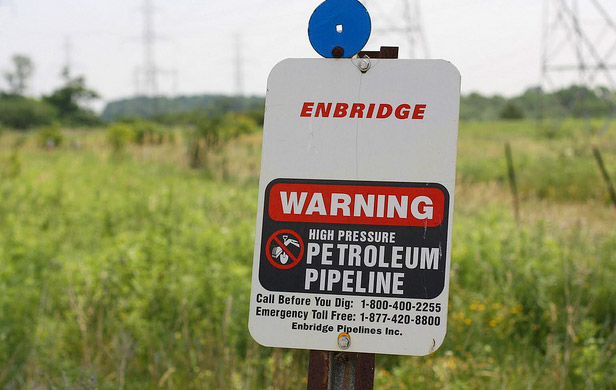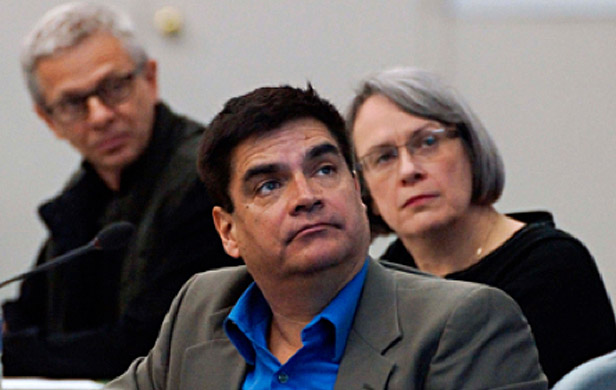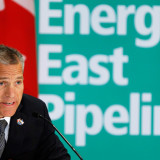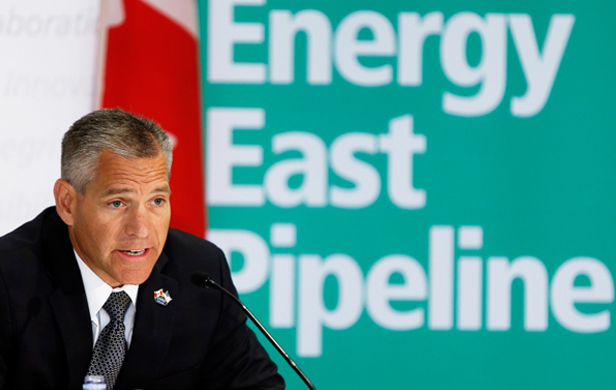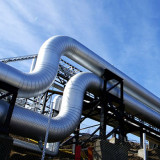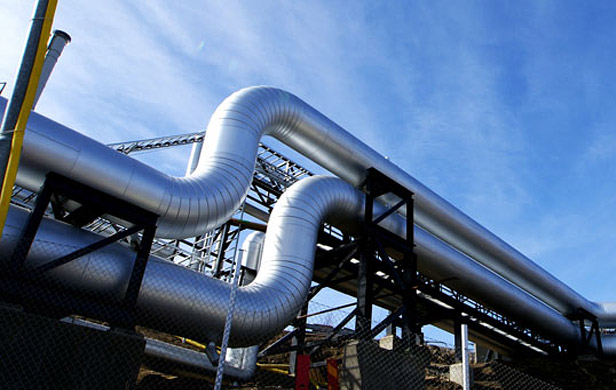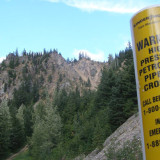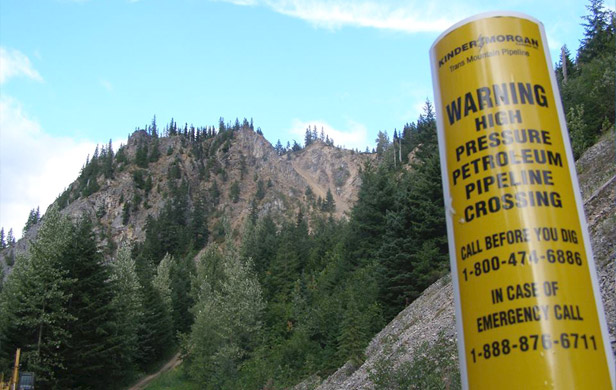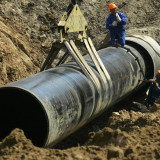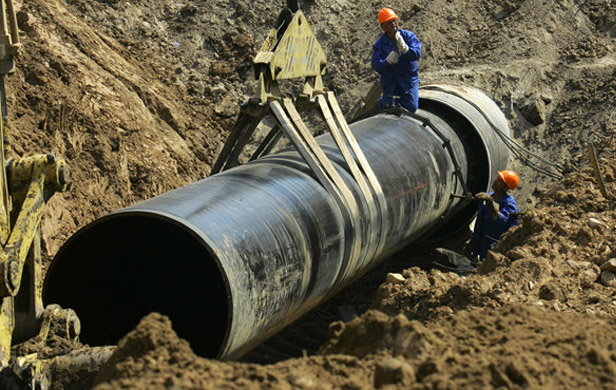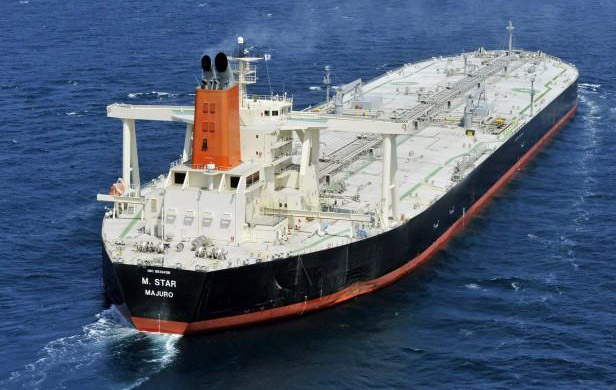
by Lauren Krugel, The Canadian Press
CALGARY – The proposed Energy East pipeline won’t be the boon to Eastern Canadian refineries that supporters claim because the vast majority of the oil in it would be bound for export markets, environmental groups argued in a report released Tuesday.
Alberta bitumen bound for India Europe
The $12-billion project would likely use the lion’s share of its 1.1 million barrel per day capacity to send unrefined oilsands crude to markets like India, Europe and possibly the United States, says the report, penned by The Council of Canadians, Ecology Action Centre, Environmental Defence and Equiterre.
The pipeline would run 4,600 kilometres from Alberta to Saint John, N.B., using repurposed pipe already in the ground for roughly two thirds of the way.
The company planning to build it, TransCanada Corp. (TSX:TRP), aims to file a formal regulatory application this summer and has been engaging with communities along the route in an effort to build support.
Backers in industry and government have said Energy East will help ailing refineries in the East — reliant on high-cost crude from abroad — by connecting them with a stable, low-cost supply from Western Canada. The proposal also includes export terminals in Quebec and Saint John, N.B., from which some of oil can be sent overseas by tanker, getting producers a better price.
Only 122,000 barrels a day to local refineries
The report Tuesday said the three refineries along the Energy East route — Suncor Energy’s (TSX:SU) in Montreal, Valero’s near Quebec City and Irving’s in Saint John, N.B., — have a combined capacity of 672,000 barrels per day.
Of that, the groups figure 550,000 barrels per day can come from elsewhere — offshore crude in Atlantic Canada, booming U.S. shale resources and, eventually, via Enbridge Inc.’s (TSX:ENB) recently approved reversed Line 9 pipeline between southwestern Ontario and Montreal. That leaves just 122,000 barrels per day of refining capacity that can be served by Energy East, the report said.
“It’s very frustrating to watch a company trying to convince Canadians that they should accept these massive risks based on some perceived benefit that they may receive. When you dig into it, you find that it’s an empty promise,” said Adam Scott, with Environmental Defence.
[quote]It’s just not true that Eastern Canada’s going to benefit in the way that TransCanada’s saying they are. And when you look and see that this is a project about putting vast quantities of oil onto tankers and shipping them out of the country, people who are convinced that ‘this is going to mean more local jobs for me’ are going to be very disappointed.[/quote]
TransCanada makes big economic promises
TransCanada has said the project’s economic benefits would be massive and has described it as a nation builder on par with the Canadian Pacific Railway.
A study TransCanada commissioned last September, conducted by Deloitte & Touche LLP, noted Quebec and New Brunswick refiners would see big cost savings if connected with lower-cost western crude.
On a 100,000 barrel per day basis, Quebec refineries would save between $92 million and $336 million per year, while in New Brunswick the annual savings would be between $51 million and $377 million, the Deloitte report said. That’s assuming those refineries continue to use mostly light oil.
Suncor has been considering adding equipment to its Montreal refinery that would enable it to process heavier crudes, while the Irving refinery in Saint John, N.B., has the ability to process some heavy crude.
Deloitte report predicts 1,000 direct long-term jobs
The Deloitte report predicted the equivalent of 10,071 direct full-time equivalent jobs across the country will be needed to develop and build Energy East until 2018. Once the pipeline is up and running, Deloitte sees the creation of 1,081 direct jobs.
The study also found the project would add about $35.3 billion to Canada’s gross domestic product in the development and construction phase and over the 40-year life of the project. As well, it’s expected to add $10.2 billion in tax revenues at the municipal, provincial and federal levels the over that time.
Those economic figures don’t include the impact of higher Canadian crude prices that would result from being able to sell the product in lucrative overseas markets. Nor does it incorporate the lower crude costs eastern refineries may enjoy.
Follow @LaurenKrugel on Twitter
